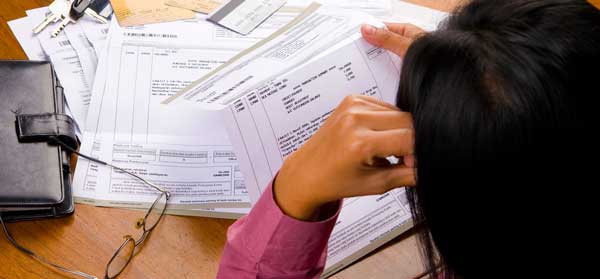Chances are there will be an energy bill or two hitting your mailbox sometime soon. If the thought of this fills you with more than the usual dread and you think you’ll have difficulty paying them, it’s best to act sooner rather than later. So, what can you do if you’re experiencing payment difficulties?
Gas and electricity bills often attract discounts if you have an eligible concession card, so the first thing you should do is check that your concession card is registered to your utility account and that you are receiving your full entitled discount. If you’re not entitled to a concession, or you’re still finding your bills too much to pay, then you may be able to access hardship plans offered by your retailer, or rebates and vouchers. Moneysmart.gov.au has a full list of concessions, rebates and vouchers available.
If you’re having problems paying an energy bill, you should:
- make contact with your supplier before your bill is due, but don’t ignore it and hope you’ll be able to pay in a couple of weeks
- ask for assistance with strategies on how to reduce your energy and water consumption
- your supplier must offer you a payment plan, but it’s important that you only agree to a plan you can afford to repay
- if you can’t reach an agreement with your supplier, contact your local ombudsman, details of which can be found by clicking the link below.
Tasmania
ACT
Victoria
NSW
Northern Territory
Queensland
South Australia
WA
What you should know
If you’ve entered into a payment plan with an energy provider and made the agreed payments, you can’t be disconnected.
When you contact your energy retailer to advise of payment difficulties, it must offer you a payment plan (unless you’ve failed to keep to two plans in the last year) and advise you of its hardship program.
Hardship programs usually waive fees, such as a late payment fee, to ensure you have the best chance of paying your bill.
Disconnection process
If you don’t make contact with your energy supplier, or don’t keep to your payment plan, then your service may be disconnected. The process is:
- your due date on your bill should be 13 days from the date the bill was issued. A first notice is usually sent after the due date
- a second notice, or disconnection notice, is usually sent six days after the first reminder
- before disconnection, your supplier must have made an effort to contact you in person – by phone, a visit to your home or via electronic communication
- if you make no effort to settle your bill 25 days after it was issued, then your energy service can be disconnected.
Retailers may be required to have processes in place to help those experiencing payment difficulties, but the onus is on you to make contact. If you’re having problems making payments, don’t delay in contacting your supplier.
Related articles:
Seven money saving life hacks
Retirement affordability suggestions
Calculate your heating and cooling costs

